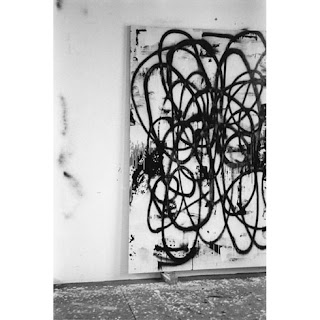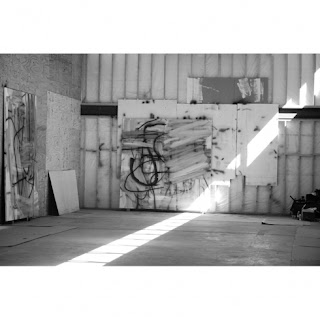Tuesday, March 8, 2011
Christopher Wool
Christopher Wool was someone I began looking at since he had a similar process of combining printmaking and painting. Aesthetically, I don't particularly care for his work, but the paintings contain all the attributes of successful abstraction. This is the probably the most interesting aspect of his work, its almost amateurish, provisional aesthetic against his obvious successes with high concept. i f you spend any more than 5 seconds with these works, the movement, layered space, and depth all become readily apparent. And that is kind of the greatest accomplishment of his work, the creation of what we consider to be smart and successful works which appear unassuming and painfully simple at first glance.
Apex
Something Ive been thinking about recently is the point where a work has reached a certain point which its plasticity is at highest level (plasticity referring to desirable or valuable aspects within a work). This is the apex of a given work, the point in which nothing more of value can be added to a work. Almost any artist can recognize this point in a work, when a piece starts to leave you and you begin questioning whether the work is done or not. More often than not, what happens is the individual continues to work on the piece because it is not at the intended state which the artist envisioned. This has to be one of the biggest follies of the young artist, the ability to get in their own way. What inevitably then occurs is the continued striving of the artist to create some preconceived image which leads to an already quality work collapsing upon itself. The ability to both literally and metaphorically step back from a work is essential to the progress and growth of any creator.
Clemens Behr
This is an artist i just stumbled upon in the last week who seems to be dealing with many similar issues I am concerned with in art. Behr seems to have an almost effortless transitional in his work from painting, to sculpture and installation. his color palette is keen and defined, but without the staleness that can come from exhausted repetition.
Subscribe to:
Comments (Atom)
















